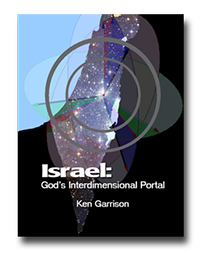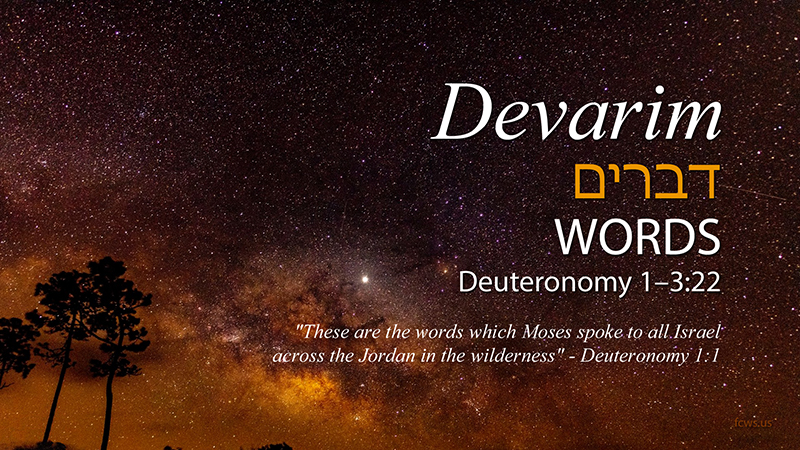 The Bible section for this week contains some interesting revelations about God, His people and His land. I will start with His land.
The Bible section for this week contains some interesting revelations about God, His people and His land. I will start with His land.
If we return to the book of Genesis and with God’s interactions with Abraham, it is evident that God chose the Land before He chose the people, i.e., Abraham. He commanded Abraham to go where He would show him. God brought Abraham to the area that we know today as Israel. Therefore, we conclude that the Land itself has special significance to God and to His plan of redemption. God described the Land as:
“a land for which the Lord your God cares; the eyes of the Lord your God are always on it, from the beginning even to the end of the year.” (Deuteronomy 11:12)
The word translated as “cares” means: to go to a place, to frequent it, to trample with the feet. So we might say that God walks about in the land of Israel. When you have the privilege to visit Israel you will most probably note this if you are a discerning person.
Moses declared that if Israel would keep the commandments and the statutes and the judgments that God would “love you and bless you and multiply you”. (Deuteronomy 7:13a). We might say today that this would define a “biblical” lifestyle. Our Israeli friends would, I suppose, call it a “Torah” lifestyle. At any rate it is a lifestyle whose fruit is produced over a lifetime, i.e., not instantaneously. Such a lifestyle produces fulfillment, contentment, success and the feeling of accomplishment. In contrast to this is a “worldly” or a “sinful” lifestyle. The “worldly” lifestyle produces instant fun and is exhilarating but eventually produces death in one form or another. The lifetime result of such a lifestyle is death. Hollywood always portrays the exhilaration of sin but seldom portrays the death that follows.
God warned Israel to destroy all of the false gods of the Canaanites as they took possession of the Land. (Deuteronomy 7:25-26) The Holy One of Israel was in the midst of Israel revealing His nature not only to Israel but to the whole world. Idols represent man’s concept of god and therefore are wholly inadequate representations of the true God. Therefore they are to be destroyed. In the Biblical era, idols were made of such things as stone, wood, silver and gold. They were material objects. Today, idols are philosophical or intellectually devised and are therefore more difficult to discern. Our challenge today is to discard intellectually devised gods and experience or know the name of the one true God. The Hebrew verb translated as “know” is Yadah and it means much more than an intellectual knowledge. It means to experience firsthand. Everyone who experiences the true God in this manner is transformed. Frequently, in the Biblical era, a person’s name was changed as a result of such an encounter with God.
Finally, from time to time as we study the Bible, we discover a summarization of God’s commandments. One such summary is recorded here:
“And now, Israel, what does the Lord your God require from you, but to fear the Lord your God, to walk in all His ways and love Him, and to serve the Lord your God with all your heart and with all your soul, and to keep the Lord’s commandments and His statutes which I am commanding you today for your good?” (Deuteronomy 10:12-13) And, “Circumcise then your heart, and stiffen your neck no more.” (Deuteronomy 10:16)
This reminds us of Psalms 15, Micah 6:8 and Mark 12:28-31. In contrast to many exhortations heard today, Moses later emphasized that these things were not too difficult for us to do (please see Deuteronomy 30:11-14).
After the original settlement in the land, the people of Israel remained for about 800 years. In this period of time, God acted through the Hebrew prophets to reveal His plan of redemption. As a result of the failure of the people to follow the commandments of the Lord, the people of Israel were separated from the land of Israel. However, the promise of the ingathering of the people to the land was repeated by virtually every prophet. That fulfillment has been happening during our lifetime.
From the late 1800’s the Jewish people have returned to the land of Israel and established settlements there. This is one of the most important fulfillments of Bible prophecy in the modern era. The land was formerly dominated by Islam and Moslems has struggled to retard Jewish immigration and to eliminate those already living in the land. Traditionally the U.S. has been supportive of Israel or, at least, neutral in  this struggle. Today, that policy has changed. The present nuclear deal with Iran insures that Iran obtains nuclear capability. They have repeatedly vowed to destroy Israel. The U.S. has become complicit in an effort to destroy Israel.
this struggle. Today, that policy has changed. The present nuclear deal with Iran insures that Iran obtains nuclear capability. They have repeatedly vowed to destroy Israel. The U.S. has become complicit in an effort to destroy Israel.
In order to understand this struggle, please see my recent book entitled “Israel: God’s Interdimensional Portal” available at Amazon. Note, in particular, chapter 3 entitled “The Oldest War”.
 I will continue my discussion of the books of Moses this week. Included in this section is some revelation concerning the connection between heaven and earth. I have developed this theme in my book
I will continue my discussion of the books of Moses this week. Included in this section is some revelation concerning the connection between heaven and earth. I have developed this theme in my book 
 Rather than focusing on the account of Pinchas in Numbers 25, I would like to reflect on the related Scripture recorded in I Kings 18 and 19. This is the account of Elijah fleeing to Mount Sinai while being pursued by Jezebel. We think of Elijah as an awesome and fearless prophet of God, but we see that he possessed very common human traits.
Rather than focusing on the account of Pinchas in Numbers 25, I would like to reflect on the related Scripture recorded in I Kings 18 and 19. This is the account of Elijah fleeing to Mount Sinai while being pursued by Jezebel. We think of Elijah as an awesome and fearless prophet of God, but we see that he possessed very common human traits.